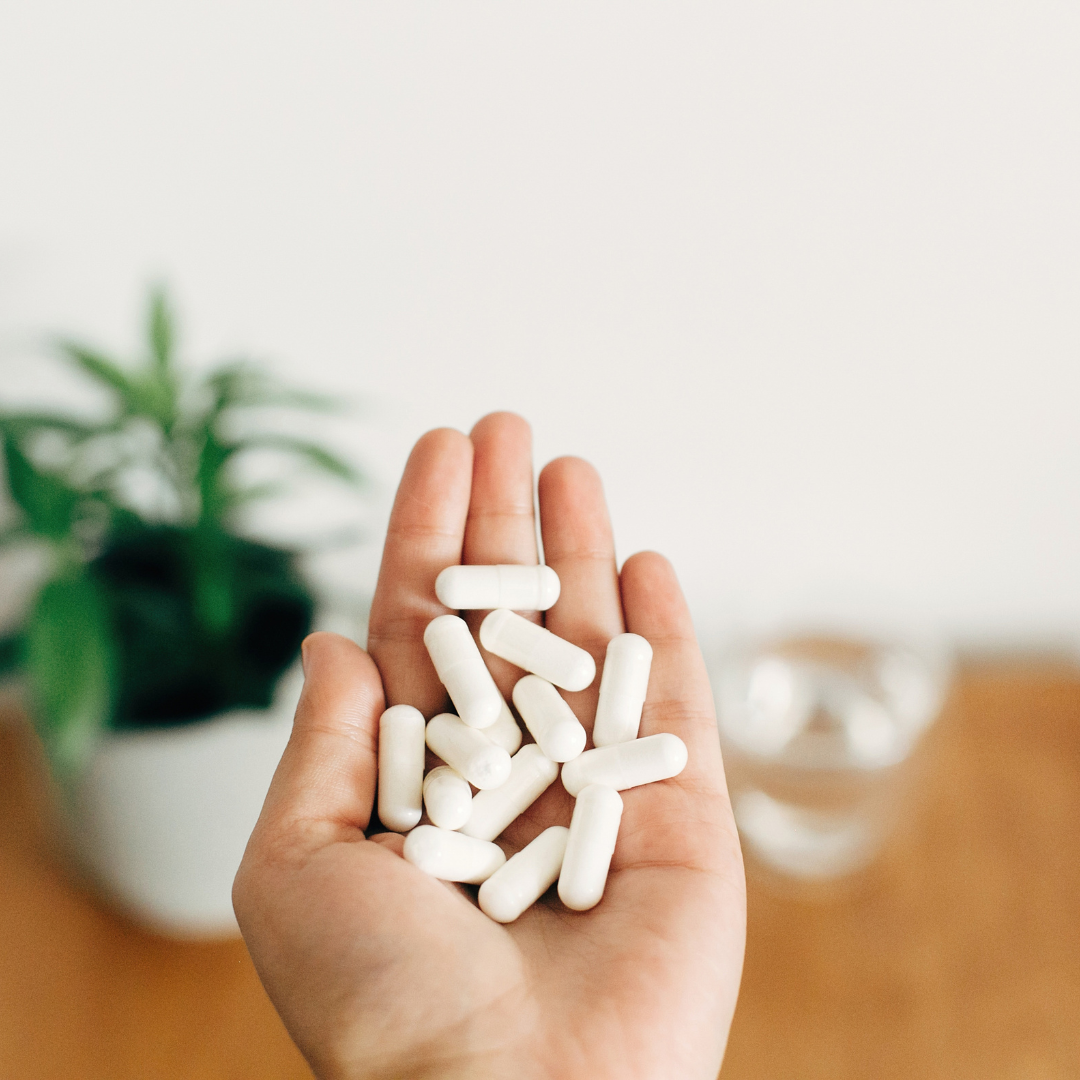Top 11 Nutrients for Supporting Postpartum Mental Health
Studies that have looked into dietary patterns that support mental health often come to similar conclusions about which nutrients seem to have the greatest impact on the risk for depression. Researchers have found that depression is usually correlated with almost every micronutrient other than phosphorus and molybdenum.
Below I’ll cover the most common nutrient deficiencies or insufficiencies seen in populations that are at an increased risk for depression and foods that contain high amounts of each.
#1. Vitamin A
Vitamin A plays an important role in immune function and as an anti-inflammatory agent. Studies have shown that deficiencies in vitamin A can result in inflammation and worsen existing inflammatory issues in the body. Since depression is considered to be an inflammatory condition, it’s likely that diets that are low in vitamin A can increase the risk for depression.
Vitamin A comes in two forms: preformed vitamin A or retinol and provitamin A carotenoids such as beta carotene. Some individuals can easily convert beta carotene into vitamin A in the body, while others cannot- this all depends on genetics. It’s important to get both forms of vitamin A from foods if possible.
Examples of foods with retinol: dairy, meat, and organ meats (especially liver)
Examples of foods with beta carotene: sweet potato, spinach, pumpkin, carrots, cantaloupe, red peppers, and mangoes
#2. B-complex
Vitamin B-complex is made up of 8 B vitamins, however, B vitamins that are most commonly deficient in diets of those with depression are folate, B6, B12, and thiamine. B vitamins are vital for making neurotransmitters such as serotonin which have a direct impact on mood.
They are also important for glucose metabolism which is extra important during times of stress because the body uses more glucose when stressed. Lastly, B vitamins are also important for supporting pathways that are involved in reducing the effects of inflammation.
Examples of foods with thiamine: pork chop, trout, black beans, mussels, bluefin tuna, acorn squash, brown rice, sunflower seeds
Examples of foods with folate: beef liver, asparagus, Brussels sprouts, avocado, broccoli, green peas, kidney beans
Examples of foods with B6: chickpeas, beef liver, yellowfin tuna, salmon, chicken breast, potatoes, turkey, banana, bulgur, winter squash
Examples of foods with B12: (only naturally found in animal products) beef liver, clams, tuna, salmon, beef, yogurt, cheese, eggs, and turkey. Common foods fortified with B12 are nutritional yeast and some non-dairy yogurts
#3. Vitamin C
Vitamin C is a powerful antioxidant and it helps to modulate or balance the immune system. This means that it can help to significantly reduce inflammation and improve symptoms or feelings of depression. Vitamin C is also really important for adrenal health which is often negatively affected by chronic stress and this long-term stress is commonly at the root of depression
Examples of foods with vitamin C: sweet red peppers, oranges, grapefruit/juice, kiwi, green peppers, broccoli, strawberries, Brussels sprouts, cantaloupe, cabbage, spinach
#4. Vitamin D
Vitamin D is a key nutrient for your mental and physical health and it plays a vital role in modulating the immune system. Studies have found that low vitamin D levels are linked to depression and certain populations such as individuals who live in northern latitudes, African Americans, and overweight or obese individuals.
Although one of the best ways to get enough vitamin D is through sunlight exposure (e.g., 15-20 minutes per day of skin exposure without sunscreen), there are some foods with smaller amounts of vitamin D. In most cases, it’s important to supplement.
Foods with vitamin D: Fatty fish (such as trout, salmon, tuna, and mackerel), fish liver oils (e.g., cod liver oil), beef liver, egg yolks, and cheese. Mushrooms that have been exposed to sunlight and fortified foods such as dairy
#5. Iron
Deficiency in iron has been shown to negatively impact the proper functioning of neurotransmitters such as serotonin and dopamine which can result in an increased risk for anxiety and depression. Moreover, individuals who develop iron deficiency anemia are also at a significantly higher risk of developing psychiatric disorders including depression and anxiety, as well as sleep disorders.
Women are more prone to iron deficiencies due to higher losses of blood via menstruation. In addition to this, certain dietary patterns such as vegan or vegetarian diets may put individuals at an even greater risk for deficiency.
To improve the absorption of iron, pair iron-rich foods with vitamin C-rich foods.
Foods with iron: oysters, white beans, dark chocolate, beef, lentils, spinach, firm tofu, kidney beans, sardines, cashews
#6. Magnesium
Magnesium is considered to be one of the most essential minerals found in the body and it plays an important role in biochemical actions in the brain as well as in maintaining healthy nerve cell function. Deficiencies in magnesium have been linked to an increased risk of nerve cell damage which may manifest as depression.
Foods with magnesium: pumpkin seeds, chia seeds, almonds, spinach, cashews, black beans, edamame, peanut butter, potatoes with skins, brown rice
#7. Omega 3 fatty acids
Studies have shown that omega 3s have a significant effect on depression in women during and after pregnancy (i.e., perinatal depression). During pregnancy, the demand for omega 3s increases greatly, particularly for DHA which is required for proper brain and retina development for the baby and the need continues while breastfeeding.
For this reason, women are at an increased risk of deficiency and low omega 3 levels can increase the chances of them developing an inflammatory condition such as depression because omega 3’s are strongly anti-inflammatory substances. Overall, studies have shown that EPA has stronger anti-inflammatory effects than DHA, however, both EPA and DHA help to decrease perinatal depression.
There are some plant sources of omega 3s and they contain ALA which can be converted into EPA/DHA in the body, however, some individuals may have very low conversion rates so it’s important to get both EPA/DHA and ALA sources in the diet.
Foods with omega 3: (DHA and EPA) mackerel, salmon, herring, oysters, sardines, anchovies, caviar, (ALA) flaxseed, chia seeds, walnuts, and soybeans
#8. Potassium
Potassium is an electrolyte and low potassium levels have been associated with a greater risk for mood disturbances and depression. In particular, studies have shown that low sodium, high potassium diets led to greater improvements in depression compared to diets with high sodium and low potassium.
Foods with potassium: dried apricot, lentils, dried prunes, acorn squash, raisins, kidney beans, banana, raw spinach, chicken breast, salmon
#9. Selenium
High selenium levels have been associated with a lower risk of postpartum depression and it appears to have a protective role against postpartum depression. It’s believed that it’s important for managing or reducing the risk of depression due to its strong immunomodulatory, antioxidant, anti-inflammatory, and neuroprotective properties.
During pregnancy, there is an increased transfer of selenium from the mother to the fetus and maternal blood levels of selenium are often reduced during pregnancy, especially in the 3rd trimester. Moreover, selenium is also transferred via breastmilk, further reducing selenium levels for mothers and increasing the risk for low levels. For this reason, selenium demand is higher during pregnancy and lactation than for women who are not during these stages.
Studies have shown that supplementing with selenium is more beneficial for increasing selenium levels and therefore it’s important to have selenium included in a multivitamin supplement (which we’ll talk about next. However, it’s still important to include foods with selenium in the diet.
Foods with selenium: brazil nuts (only need 2-3 per day), tuna yellowfin, halibut, sardines, ham, shrimp, beefsteak, turkey, chicken, cottage cheese, brown rice, hard-boiled eggs, oatmeal
#10. Zinc
Zinc is a vital mineral that is required to create the enzymes that are needed in various steps for creating, using, and breaking down neurotransmitters needed in the brain such as serotonin and dopamine. Researchers have found that there is a strong connection between zinc deficiency and an increased risk of depression and that adequate zinc intake (via supplementation) can help improve depressive symptoms.
Foods with zinc: oysters, beef chuck roast, crab, lobster, pork chop, baked beans, dark meat chicken, pumpkin seeds, cashews, chickpeas, oatmeal, almonds
#11. Iodine
Unlike the micronutrients listed above, iodine is not one of the most common nutrient deficiencies or insufficiencies that are seen in studies that look at populations that are at an increased risk for depression. However, iodine deficiency can lead to subclinical hypothyroidism or clinical hypothyroidism which has been linked to an increased risk for depression in some studies. Even more, iodine deficiency has re-emerged in some populations in the U.S.- with women who are pregnant or in postpartum being at a particularly increased risk.
During pregnancy and postpartum, iodine requirements are greater due to an increase in thyroid hormone synthesis, transfer of iodine to the fetus, increased loss of iodine in the urine, and secretion of iodine in breast milk. For these reasons, women who are pregnant or lactating are at an increased risk of iodine deficiency which can lead to poor thyroid function or hypothyroidism and essentially may increase the risk of depression.
Furthermore, more individuals are choosing not to purchase iodized salt and are taking dairy out of their diet- which is two of the main sources of iodine in many Americans’ diets. In addition to this, certain types of seafood is another source of iodine so individuals who choose not to eat seafood are also increasing their risk of deficiency.
It may be recommended for women who are pregnant or in postpartum to supplement with 150 mcg per day of iodine, especially if they are not consuming enough food sources of iodine (we’ll talk more about supplements next).
Foods with iodine: cod, seaweed (nori, kelp), oysters, greek yogurt, cow’s milk, iodized salt (1/4-1/2 teaspoon/day only), hard-boiled egg

